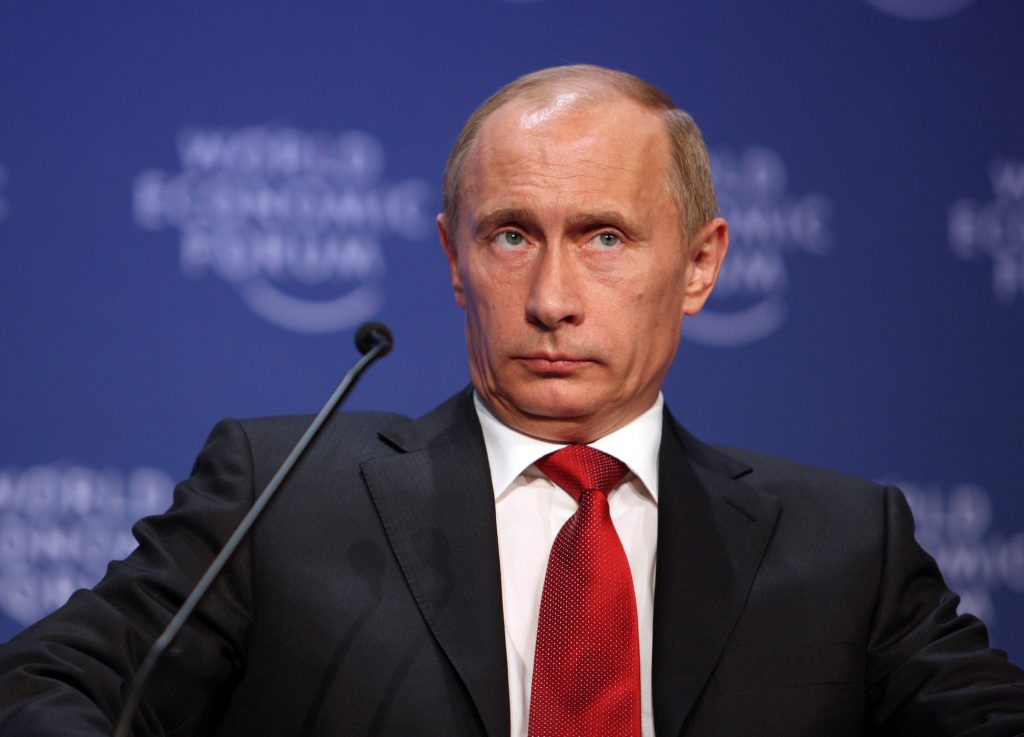
Let there be no mistake: Russia’s President Vladimir Putin holds the current title as the world’s wickedest and most dangerous man. He is waging a nakedly brutal war of aggression against Ukraine in violation of every standard of decency and the international protocols of warfare recognized since the end of World War II. He has driven, in the current crisis alone, 14 million people from their homes and abducted uncounted tens of thousands more. He has crushed, over more than 20 years, every vestige of popular government and every expression of dissent in the vast territory he controls. He has imprisoned, tortured and poisoned political opponents. He has dropped them from tall buildings. He has reduced whole cities to rubble, at home and abroad. His reckless threats and conduct have created the greatest threat of nuclear calamity since the Cuban Missile Crisis of 60 years ago. He is one bad dude, and although he has plenty of competitors, at the moment no one else is even close.
He has also done us a favor. He’s taken the heat off us.
Since World War II, no other nation has fought anywhere near the number of wars we have, or at such length. When Putin invaded Ukraine, calling it not a war but a “special military operation,” he took a page from the book of President Harry Truman, who called our war in Korea a “police action” not requiring the Congressional Declaration of War mandated by the Constitution. That “action” took over 50,000 American, millions of Korean, Chinese, and Allied lives. Almost 70 years later, it has not been formally ended. Not one of our many wars since Korea has been declared one. The last such one was World War II itself.
No sooner had the Korean War resulted in a ceasefire, still perilous, then we were embarked on one to prop up the dying French empire in Vietnam, in which some of our military leaders, like Putin, suggested using nuclear weapons. That morphed into a 20-year war, justified by the false claim of a naval attack, engulfing three nations, and ending in ignominious defeat. While that was ongoing, we also invaded the Dominican Republic and Cuba and carried out the overthrow, sometimes by assassination, of various foreign leaders.
After a brief but far from inactive pause, we fought another 20-year war against our erstwhile ally, Iraq, the invasion of which was justified by its alleged possession of weapons of mass destruction, none of which were ever found. At the same time, we fought a second 20-year war in Afghanistan in supposed retaliation for 9/11, which ended too in defeat.
You get the picture. Vladimir Putin may not have intended to burnish our image, but he has certainly given it a breather. This may help us to better understand why many nations, especially in Asia and Africa, have been noticeably cool to the sanctions we have imposed on Putin, taking advantage of his cheapened gas and oil exports to buy them at bargain prices. Even where, as in China and India, leaders Xi Jinping and Narendra Modi have recently paid lip service to the principle that wars of aggression are beyond the pale in the modern world order, their statements reflect more Russia’s parlous position in Ukraine than anything else.
In fact, Putin has lost his war, whatever its military outcome. He based it on two premises. The first was the proposition that most of the Eurasian continent was properly Russky mir or “Russian Earth,” despite the many peoples who inhabit it and who had separated themselves from the former Soviet Union at its fall. The second was that the Russian military, regenerated by Putin, was again the invincible Red Army of yore. The lie was given the first premise not only by the stout resistance of Ukraine but the unanimous rejection of former Soviet republics from the Baltic Sea through Central Asia to union with Putin’s Russian Federation, the puppet regime of Belarus alone excepted. The second premise collapsed with the disastrous failure of Russian forces in Ukraine, where, having anticipated capitulation within days, they now find themselves in the eighth month of a bitter struggle that finds them everywhere on the defensive and desperately short of manpower, equipment, and strategy. The effect of this on morale, civilian as well as military, cannot be overestimated. If there was one thing the Russian nation could take pride in was its victory against Nazi Germany in what Russians still call the Great Patriotic War, where—at superhuman cost—they had thrown back and defeated what had been considered the greatest military force ever assembled. The Red Army has been Russia’s myth and legend. Its successor now lies not only in defeat but disgrace.
Nothing Putin can do, however long he wages his war or whatever price he exacts, can rescue him from this failure. Instead of a weakened North Atlantic Treaty Organization and a divided Europe, he finds himself—so far—with a strengthened and expanded one. Instead of a superpower, he presides over a shell. Instead of a nation united in defense of its soil, he confronts military reservists and potential draftees fleeing the country from every available exit. He is still dangerous, all the more so for being cornered. But his days, I submit, are now numbered.
When the Soviet Union collapsed in 1991, we thought the Cold War was over. Instead, the policies we adopted—and failed to adopt—have given it a new chapter. This time, and if our luck holds, we must think harder and do better. And not with Russia alone.


